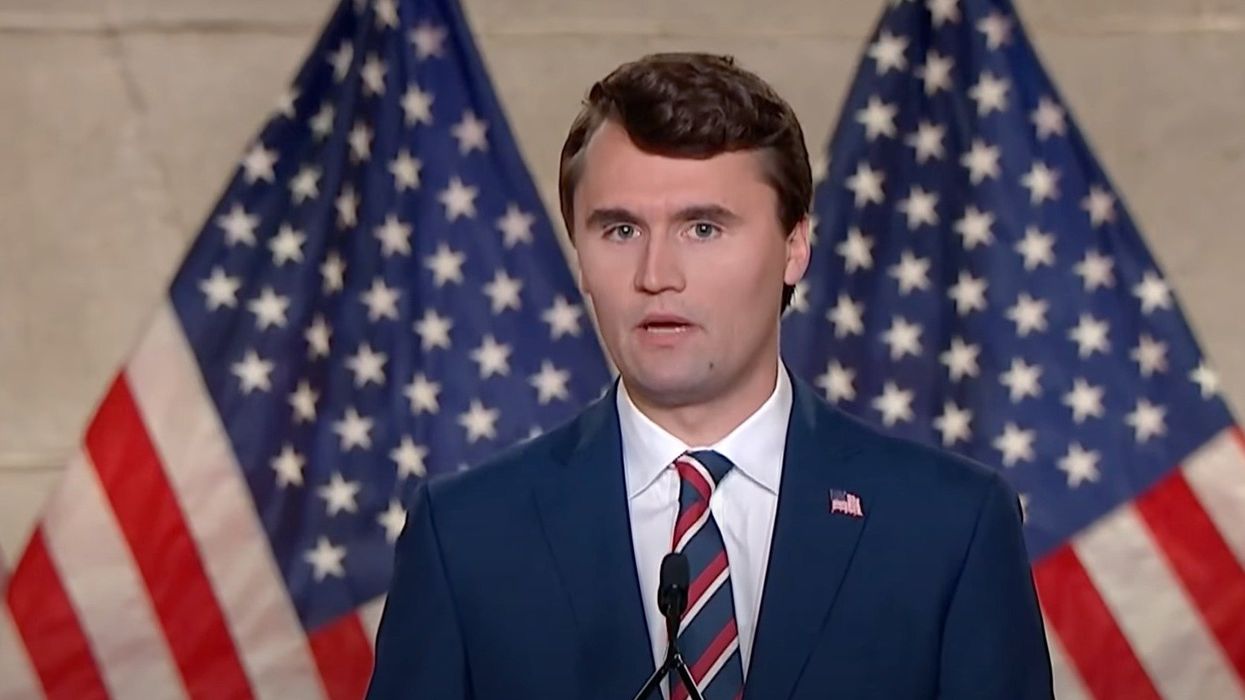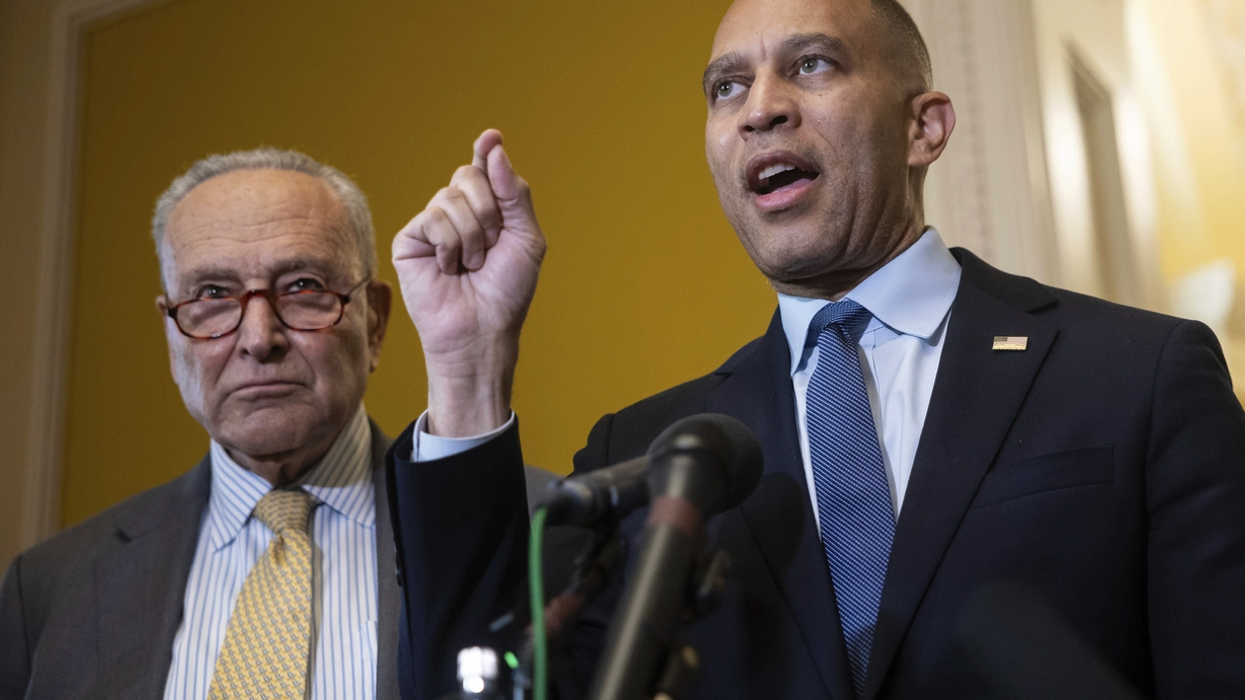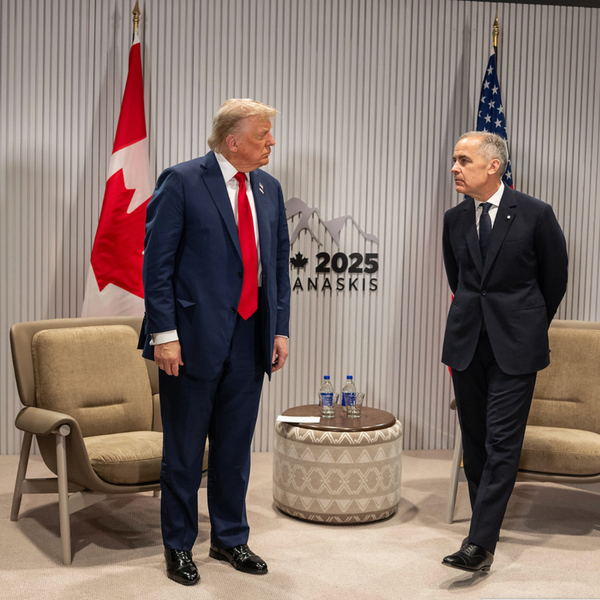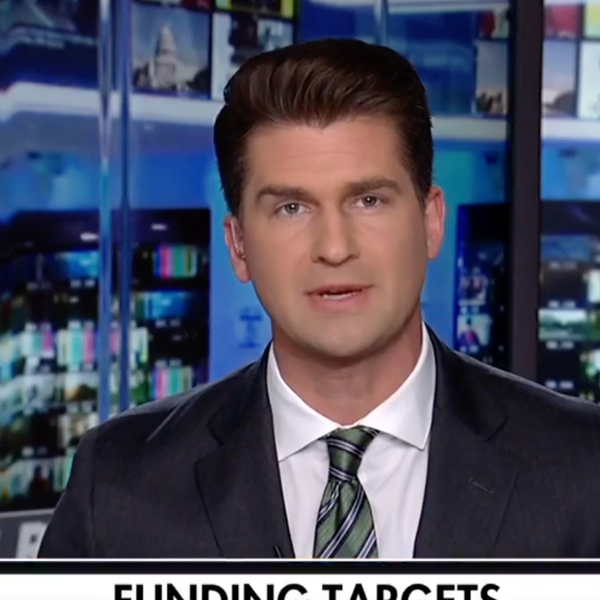Is The Other Party Truly The Enemy -- Or Do We Exaggerate Political Polarization?
Just after the assassination of Charlie Kirk, a New York Times/Siena poll found that Americans believe polarization is the second most serious challenge facing the nation. (The economy came in first.) As recently as one year ago, fewer than one percent of registered voters cited polarization as a national problem; this year, 13 percent said it was the most important problem facing the nation. Additionally, strong majorities agree that "America's political system ... is too politically divided to solve its problems."
Not only do Americans believe we're bitterly polarized; they worry that we're condoning political violence and that we cannot agree on basic facts. When Republicans were asked to name the nation's biggest problem, their first choice was the economy but their second was "Democrats." When Democrats were asked the same question, they put the economy second and named "Trump/Republicans" first.
Nations are not eternal, and domestic divisions often lead to destruction — especially when exploited by foreign enemies. So it's important to pay attention to these red flags, but it's equally important not to misinterpret them.
When we consider how much of our discourse is mediated through partisan sources and the fact that the governing political party is dominated by incendiary extremists, it's surprising we aren't even more polarized. A reservoir of moderation persists in the nation. It's shrinking but still present.
Research by More in Common (where I serve on the board) has found that time spent online is highly correlated with support for political violence. A 2024 survey conducted by the group found that 14 percent of American adults agreed with the statement "I feel that violence is sometimes needed to advance political causes in the U.S. today." That number jumped to 22 percent among those who spent five or more hours on social media daily and dropped to six percent among those who devoted a half-hour or less to social media each day.
Surveys showing support for political violence are disturbing, particularly in the wake of assassination attempts on Trump, arson at the home of Gov. Josh Shapiro, the attack on Paul Pelosi, the assassinations of Melissa Hortman and Charlie Kirk, and other politically motivated attacks. But those surveys can also be misleading. As More in Common explains, vaguely worded questions — that, say, fail to define violence or to distinguish between attacks on people and attacks on property — can lead to inflated responses. When Americans are asked, for example, whether it is justified to commit violence against supporters of the other party's presidential candidate, nearly 100 percent say no.
And yet, Americans have a distorted impression of how their political opposites feel about violence. The same More in Common survey from 2024 (conducted after the assassination attempt on Trump) found that Democrats and independents vastly overestimated how Republicans would react. Democrats guessed that 47 percent of Republicans would agree with the statement "Violence against Democrats is now justified." The actual number of Republicans who agreed with the statement was 13 percent. Independents estimated that 38 percent of Republicans would endorse the statement.
Misperceptions abound on other topics as well. A June 2025 survey found that 85 percent of Republicans and 89 percent of Democrats believe freedom of speech to be "unconditional." Yet Republicans estimated that only 52 percent of Democrats believed that, and Democrats guessed that only 57 percent of Republicans would say so.
Similarly, 80 percent of Democrats and 85 percent of Republicans say it's important to respect those with whom you disagree. Democrats think only 39 percent of Republicans assent to this, and Republicans estimate that only 36 percent of Democrats would say the same.
Vast swaths of Americans of all political persuasions would like to see a more united country, yet on this question as well, the perception gap is large. When Republicans were asked in January 2025 what qualities Democrats would want to see in the country 10 years into the future, they guessed "green" or "tolerant." Republicans estimated that only about 14 percent of Democrats would say "united," but in fact, 44% percent of Democrats chose united, more than any other quality. And while 47 percent of Republicans offered that they wanted to see a united country, Democrats supposed that this would be true of only 13 percent of the GOP.
There is no sugarcoating the trend toward authoritarianism among the very online and a growing share of Republicans. While only one percent of Democrats say they endorse non-democratic government in the United States, fully 10 percent of Republicans now say as much. On the other hand, Democrats might be surprised to learn that 13 percent of Republicans believe that Donald Trump's presidency poses a greater threat to democracy than the courts or bureaucracy. Of course, if that 13 percent includes the 10% who like autocracy, it's a less encouraging finding.
Surveys can't capture everything. And even in a nation where large majorities disfavor violence or extremism, we can't kid ourselves. A small number of dedicated revolutionaries have overcome widespread indifference before. Still, the research on perception gaps is a useful corrective to pervasive beliefs about our divisions. The gaps are wide but perhaps not as deep as we fear, and there remain opportunities for leaders to appeal to unity and mutual respect.
Mona Charen is policy editor of The Bulwark and host of the "Beg to Differ" podcast. Her new book, Hard Right: The GOP's Drift Toward Extremism, is available now.
Reprinted with permission from Creators












